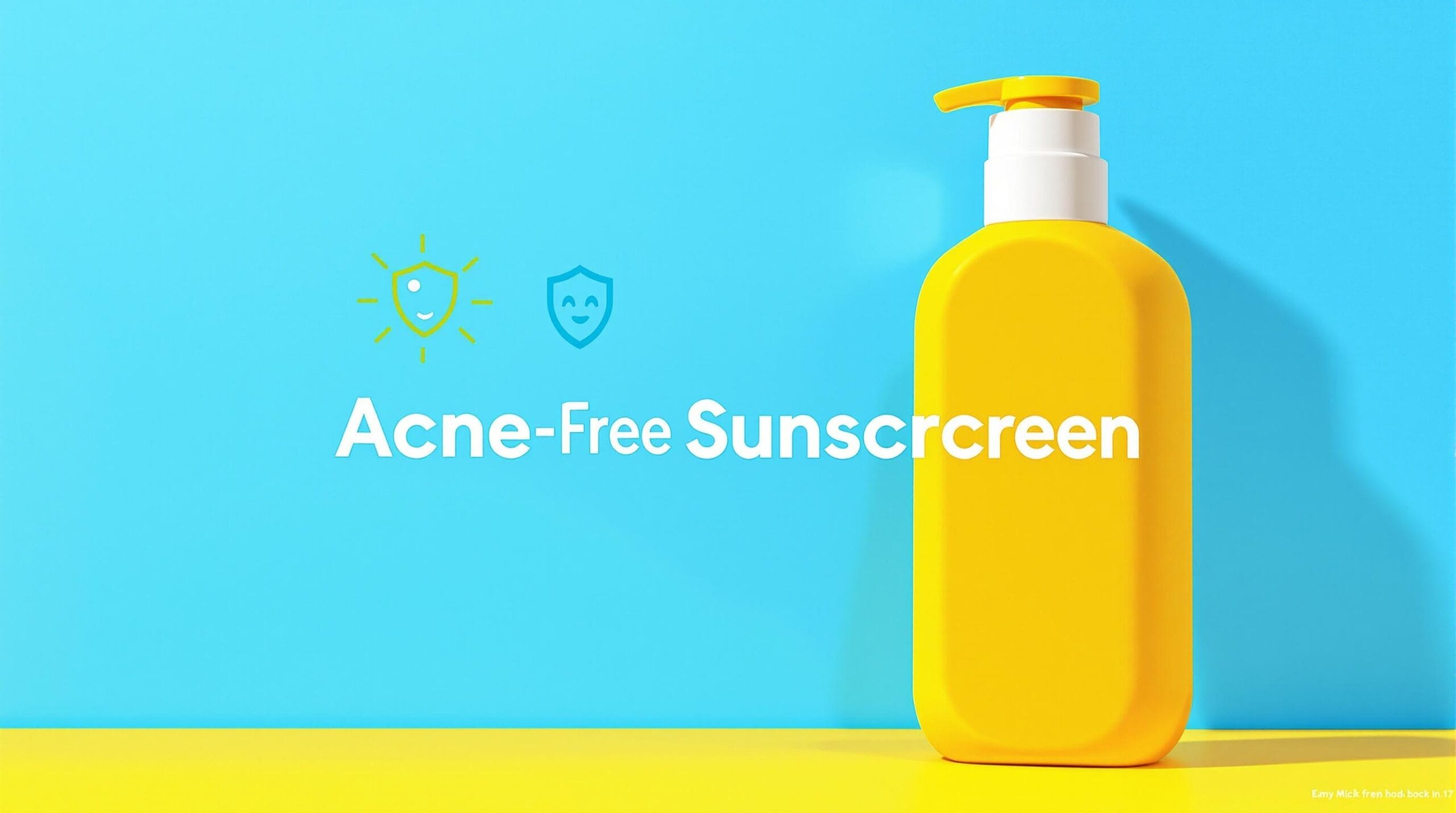
Sunscreens are crucial for protecting your skin from harmful UV rays. However, some ingredients in sunscreen can trigger acne in susceptible individuals. Oils and heavy emulsifiers often found in sunscreen can clog pores, leading to breakouts. It’s vital to identify and avoid these components if you experience acne after applying sunscreen.
The Good, the Bad, and the Comedogenic Ratings
‘Comedogenic‘ refers to the potential of a substance to clog pores. Ingredients like zinc oxide are typically non-comedogenic, making them suitable for acne-prone skin. Always check the label to ensure you’re buying a product that won’t contribute to breakouts.
Ditching the Acne: 5 Missteps to Avoid
Wearing Sunscreen Incorrectly: Top Mistakes
One common mistake is not applying enough sunscreen or neglecting to reapply it. For adequate protection, apply a generous layer at least 15 minutes before sun exposure and reapply every two hours. Avoiding these errors can reduce your risk of acne while ensuring sun protection.
Choosing the Wrong Type of Sunscreen
Understanding the difference between physical and chemical sunscreens can help in selecting the best option for acne-prone skin. Physical sunscreens, containing ingredients like titanium dioxide and zinc oxide, tend to be less irritating and less likely to cause breakouts compared to some chemical sunscreens.
Choosing Acne-Friendly Sunscreen: The Ultimate Guide
Non-Comedogenic Labels: What to Look For
When shopping for sunscreen, look for ‘non-comedogenic’ labels, ensuring they won’t clog pores. Brand recommendations include Neutrogena Clear Face and La Roche-Posay Anthelios, known for their light formulas that suit acne-prone skin.
Ingredient Spotting: Good vs. Bad Components
Opt for sunscreens with beneficial ingredients such as broad spectrum sunscreens like zinc oxide, niacinamide, and hyaluronic acid. Avoid products with heavy oils and dense silicones which can exacerbate acne. Checking ingredient lists is key to selecting safe sunscreen products.
Skincare Routine: Layering Sunscreen Wisely
The Order of Application: Get It Right!
For the perfect layering, start with a gentle cleanser, followed by a light moisturizer, and end with sunscreen. This order helps maintain a barrier against acne while ensuring that your skin remains hydrated and protected.
Daily Skincare Strategy to Combat Breakouts
Incorporate a balanced routine that includes targeted acne treatments. Look for serums with salicylic acid or benzoyl peroxide to tackle active breakouts and use a gentle, non-irritating sunscreen to protect and heal your skin.
Remedies to Soothe Sunscreen-Induced Acne
Quick Fixes: Spot Treatments and Home Remedies
For immediate relief, use spot treatments with benzoyl peroxide or tea tree oil. For a DIY approach, try a green tea and honey mask to calm inflamed pores. These methods can provide quick relief from sunscreen-induced acne symptoms.
When to Seek Professional Help
If over-the-counter treatments don’t help, it may be time to consult a dermatologist. They can offer prescription options and guidance on choosing effective sunscreens that won’t trigger breakouts. Open communication about product experiences is crucial in finding a solution.
Final Thoughts: Protect Without the Breakouts
Sun protection doesn’t have to come at the cost of clear skin. By selecting the right products and routines, you can enjoy the sun responsibly without the fear of breakouts. Experiment with different formulas to find what works best for your skin type.
The Shocking Truth About Silicone Sunscreen: Is It Hiding a Secret Danger for Your Skin? >>>
Is the Order of Your Skincare Routine Sabotaging Your Sunscreen? Find Out Now! >>>







